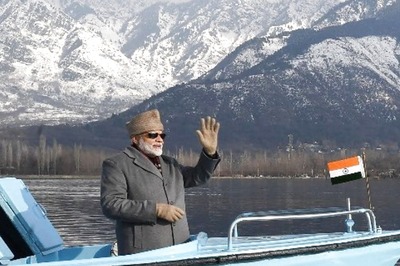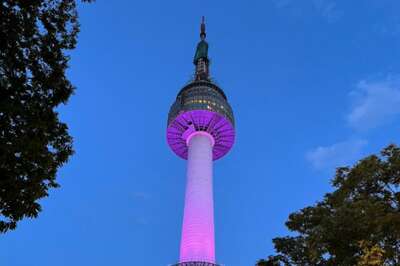
views
New Delhi: Observing no state can claim "exclusive ownership" of inter-state river water, the Supreme Court on Friday hiked Karnataka's share of Cauvery water by 14.75 tmcft and reduced Tamil Nadu's quantum by an equal amount in its verdict to resolve the decades-old dispute.
In what was being described as a balanced verdict, Tamil Nadu was, however, compensated by the court which allowed extraction of 10 tmcft ground water from the river basin.
Opposition parties in Tamil Nadu led by the DMK expressed unhappiness over the judgement even as the ruling AIADMK assured to work "diligently" to ensure farmers and people of the state get 177.25 tmcft apportioned by the court.
Superstar Rajinikanth, who has announced that he will soon take the political plunge, said the verdict was "very disappointing" and urged the state government to file a review petition.
Karnataka Chief Minister Siddaramaiah said that though the verdict was not as per the state's appeal, he was happy with it as "we have got some relief".
Siddaramaiah also said he did not want to say that the verdict was a defeat for any state and noted that the apex court had only responded to "our difficulties".
Maintaining that the issue of drinking water has to be placed on a "higher pedestal", the top court enhanced Karnataka's share from 270 tmcft to 284.75 tmcft on account of water for drinking and domestic requirements, while lowering Tamil Nadu's share of water from 419 tmcft to 404.25 tmcft but allowing it to extract 10 tmcft of ground water from the river basin.
The apex court, which modified the 2007 award of the Cauvery Water Dispute Tribunal (CWDT) with respect to Karnataka and Tamil Nadu, retained the share of Kerala at 30 tmcft and Puducherry at 7 tmcft, out of a total of 740 tmcft.
Besides this, 10 thousand million cubic feet (tmcft) of water would be used for environment protection and 4 tmcft would be kept for inevitable escapages into the sea.
The CWDT award of February 5, 2007, which was notified in the gazette on February 19, 2013, had allocated 419 tmcft, 270 tmcft, 30 tmcft and 7 tmcft of water yearly to Tamil Nadu, Karnataka, Kerala and Puducherry respectively.
A three-judge bench headed by Chief Justice Dipak Misra justified the increase in Karnataka's share by taking note of the principle on drinking water and the "global status" acquired by the state capital and the IT city of Bengaluru.
"Drinking water requirement of the overall population of all the states has to be placed on a higher pedestal as we treat it as a hierarchically fundamental principle of equitable distribution," the bench said.
"The tribunal had drastically reduced the share of Karnataka towards domestic and industrial purpose for the reason being that only 1/3rd of the city of Bengaluru falls within the river basin and also on the presumption that 50 per cent of the drinking water requirement would be met from ground water supply.
"The said view taken by the tribunal ignores the basic principle pertaining to drinking water and is, thus unsustainable. Keeping in mind the global status that the city has attained, an addition of 4.75 tmcft is awarded to Karnataka," the bench, also comprising Justices Amitava Roy and A M Khanwilkar, said.
Out of the enhanced 14.75 tmcft of water in Karnataka's share, 10 tmcft has been increased on account of availability of ground water in Tamil Nadu.
The bench granted six weeks' time to the Centre to formulate a scheme to ensure compliance with its 465-page judgement, which modified the CWDT award and made it clear that it will not be extending time for this on any ground.
It said the order on Cauvery water allocation will continue for the next 15 years.
"The waters of an inter-state river passing through the corridors of the riparian states constitute national asset and cannot be said to be located in any one state. Being in a state of flow, no state can claim exclusive ownership of such waters or assert a prescriptive right so as to deprive the other States of their equitable share," the court said.
The court, which decided the appeals and cross-appeals of Karnataka, Tamil Nadu and Kerala against the 2007 arbitral award, considered the materials brought on record by the parties and said the final determination of the irrigated area arrived at by the tribunal for Tamil Nadu, cannot be declared incorrect or fallacious.
The bench said that in view of the "acute scarcity of the water resources" and the intensely contested claims of the states, it is expected that the allocations hereby made would be utilised for the purposes earmarked and accepted and "no deviancy is shown in carrying out the verdict of this court".
Inter-state bus services between Tamil Nadu and Karnataka was suspended in the wake of the judgement but resumed in the evening, said a senior district official said in Hosur, a border town in Tamil Nadu.

















Comments
0 comment